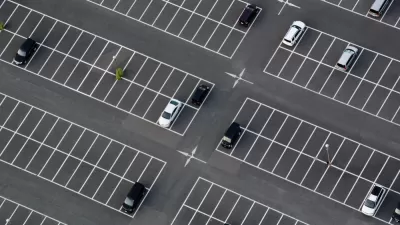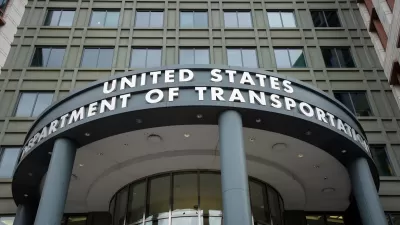Philadelphia is providing a living case study of the tenants of the Donald Shoup-approach to parking.
Jon Geeting reports on a parking inventory of Center City Philadelphia released recently by the city's Planning Commission. The inventory produces a few findings that reconcile with contemporary thinking about parking, in line with the lessons of Donald Shoup.
The inventory, produced every five years, tracks the effects of a wave of construction in Center City, which reduced the number of off-street public parking spaces by 3,623, or 7.2 percent. Geeting explains the potentially surprising effect of the reduced parking:
"One might guess that losing more than 3,600 parking spaces in a five year span would drive up occupancy rates in the remaining lots and garages, but on the whole this hasn't been the case. Counterintuitively, parking occupancy actually declined by 1.7 percent during this period, from 75.6 percent down to 73.9 percent."
To more explicitly call out the kind of people who doubt the contemporary planning wisdom about parking, Geeting adds this passage later in the article:
"The idea that building more parking capacity will only increase the number of cars in a neighborhood, or conversely, that removing parking spaces can reduce the number of cars often gets short shrift at neighborhood zoning meetings, but the evidence here suggests this is basically how things work."
The article goes into a lot more detail about the inventory's findings, and also ties back to some of the politics of parking in the city—including how it has brought about the city's ongoing lack of dynamic parking pricing.
FULL STORY: Study: Center City lost 7 percent of its public parking spaces in the last five years

Planetizen Federal Action Tracker
A weekly monitor of how Trump’s orders and actions are impacting planners and planning in America.

Congressman Proposes Bill to Rename DC Metro “Trump Train”
The Make Autorail Great Again Act would withhold federal funding to the system until the Washington Metropolitan Area Transit Authority (WMATA), rebrands as the Washington Metropolitan Authority for Greater Access (WMAGA).

DARTSpace Platform Streamlines Dallas TOD Application Process
The Dallas transit agency hopes a shorter permitting timeline will boost transit-oriented development around rail stations.

Renters Now Outnumber Homeowners in Over 200 US Suburbs
High housing costs in city centers and the new-found flexibility offered by remote work are pushing more renters to suburban areas.

The Tiny, Adorable $7,000 Car Turning Japan Onto EVs
The single seat Mibot charges from a regular plug as quickly as an iPad, and is about half the price of an average EV.

Supreme Court Ruling in Pipeline Case Guts Federal Environmental Law
The decision limits the scope of a federal law that mandates extensive environmental impact reviews of energy, infrastructure, and transportation projects.
Urban Design for Planners 1: Software Tools
This six-course series explores essential urban design concepts using open source software and equips planners with the tools they need to participate fully in the urban design process.
Planning for Universal Design
Learn the tools for implementing Universal Design in planning regulations.
Municipality of Princeton
Roanoke Valley-Alleghany Regional Commission
City of Mt Shasta
City of Camden Redevelopment Agency
City of Astoria
Transportation Research & Education Center (TREC) at Portland State University
US High Speed Rail Association
City of Camden Redevelopment Agency
Municipality of Princeton (NJ)





























